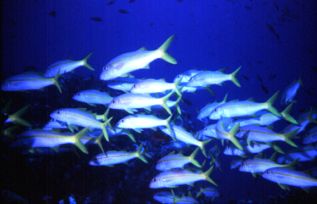|

|
The government is aiming to restrict the risks associated with this unbalanced economic arrangement by introducing relevant measures. The aim of all political parties is to organize the islands' infrastructure in such a way that will facilitate sensible development for tourism. Only in this way can an economically imperative and ecologically sensible additional source of income be developed. This is necessary because due to the monocultures and the lack of other opportunities to expand foreign trade through export, there is a comparatively high rate of unemployment. The government wants this to be lowered dramatically, particularly through the creation of jobs in the area of tourism.
The gross domestic product can be broken down as follows: